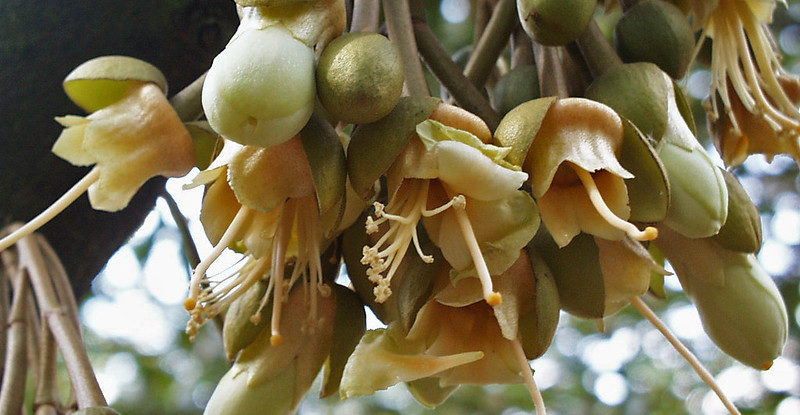
As the main pollinators of the stinky but popular durian fruit, bats make a significant contribution to the local economy of the Indonesian island of Sulawesi, a new study shows.
The activities of the nocturnal mammals determine whether fruit production will be successful or unsuccessful, demonstrating the vital need to protect them, said researchers from the University of Florida, the Wildlife Conservation Society in Indonesia, the American Museum of Natural History and the National Museum of the Philippines.
For Indonesia, a primary producer of durian in Southeast Asia, the fruit had an export value of almost $255 million in 2013, the researchers said. However, production quotas are inconsistent, leading to the Sulawesi study in an effort to determine methods that could improve crop production.
Researchers wanted to learn more about how to increase the value of semi-wild durian (Durio zibethinus) grown in agroforestry systems as a cash crop for small-scale farmers.
Through camera traps set in durian trees in the village of Batetangnga between October 2017 to 2018, researchers observed three bat species — the Sulawesi fruit bat (Acerodon celebensis), dawn bat (Eonycteris spelaea) and the black flying fox (fPteropus alecto) — interacting with flowers, which were open and receptive at night.
Although there were other pollinators, including birds and bees, who visited the plants, the bats stayed longest, damaged the flowers least and were deemed by researchers to have transferred sufficient loads of pollen to produce fruit.
Researchers estimated a value of $117 a hectare of durian per season resulting from bat pollination for 1,500 tons of the fruit in Batetangnga. Roughly 1.5 million durians were valued at $450,000 (6.3 billion Indonesian rupiah).
Promoting organic durian domestically and abroad could increase the price of durian and decrease trade deficits without increasing crop yield or converting forests to agricultural production, researchers said.
The study offers evidence that enhanced conservation of bats has the potential to improve the productivity of durian in Indonesia to fulfill high domestic demand.
Currently, the bats are under threat because they are hunted in Sulawesi for sale in local bushmeat markets. The Sulawesi fruit bat is classified as vulnerable on the International Union for Conservation of Nature Red List.
We want you to share Forests News content, which is licensed under Creative Commons Attribution-NonCommercial-ShareAlike 4.0 International (CC BY-NC-SA 4.0). This means you are free to redistribute our material for non-commercial purposes. All we ask is that you give Forests News appropriate credit and link to the original Forests News content, indicate if changes were made, and distribute your contributions under the same Creative Commons license. You must notify Forests News if you repost, reprint or reuse our materials by contacting forestsnews@cifor-icraf.org.